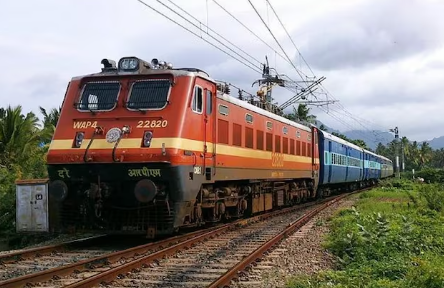Railways Amendment Bill 2024
The Railways (Amendment) Bill, 2024 was introduced by Union Minister Ashwini Vaishnaw and aims to enhance the efficiency of Indian Railways. The Bill proposes changes to governance and operations.
Key Proposals
The Bill seeks to grant statutory powers to the Railway Board, which has functioned without legal backing since its establishment. It also merges the Indian Railway Board Act of 1905 with the Railways Act of 1989 and aims to simplify the legal framework governing railways.
Decentralization of Powers
A major focus is on decentralizing decision-making. Railway zones will gain autonomy in managing budgets and infrastructure projects. This empowers them to make operational decisions independently. The Bill addresses long-standing demands for increased local control.
Independent Regulator
The establishment of an independent regulator is a key feature. This regulator will oversee tariffs, safety, and private sector participation. It aims to protect stakeholder interests and enhance competition. The idea for such a regulator was first proposed in 2015.
Governance Improvements
The government will manage the selection process for Railway Board members. This includes setting qualifications and terms of service. These changes aim to improve governance and accountability within the railway system.
The Bill includes provisions to expedite infrastructure improvements, will allow for the extension of train routes, particularly benefiting regions like Bihar. Such upgrades require substantial financial investments.
Opposition Concerns
Opposition leaders have expressed concerns regarding potential privatization. They argue it may reduce accessibility for lower-income passengers. There are also fears about diminished autonomy for the Railway Board. Calls have been made to restore fare concessions for senior citizens.
Government Defence
The government defends the Bill as a means to modernise and make Indian Railways self-reliant. Supporters believe it will enhance competition and operational efficiency. However, debates continue about its implications for passenger welfare and long-term effects.
GKToday Facts for Exams:
- Indian Railway Board Act of 1905 The Indian Railway Board Act of 1905 established the framework for railway governance. It lacked statutory backing, affecting its operational authority and effectiveness.
- Decentralisation in Railway Zones Decentralisation empowers railway zones with operational autonomy. This approach allows local management of budgets and infrastructure, addressing long-standing demands for increased local control.
- Independent Regulator The independent regulator proposed in 2015 aims to oversee tariffs and safety. Its establishment is intended to protect stakeholder interests and enhance competition within Indian Railways.
- Bihar Train Route Extensions The Bill proposes extending train routes to benefit regions like Bihar. This initiative requires financial investments, aiming to improve connectivity and regional development.
Month: Current Affairs - December, 2024
Category: Legal & Constitution Current Affairs



